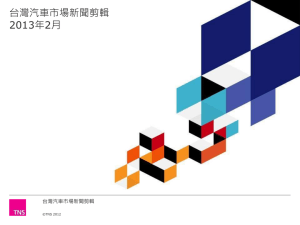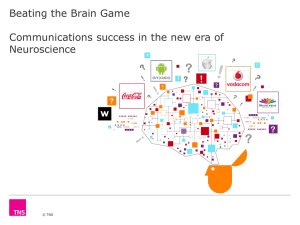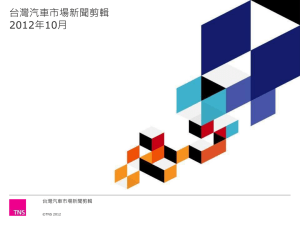TNS Policies
advertisement
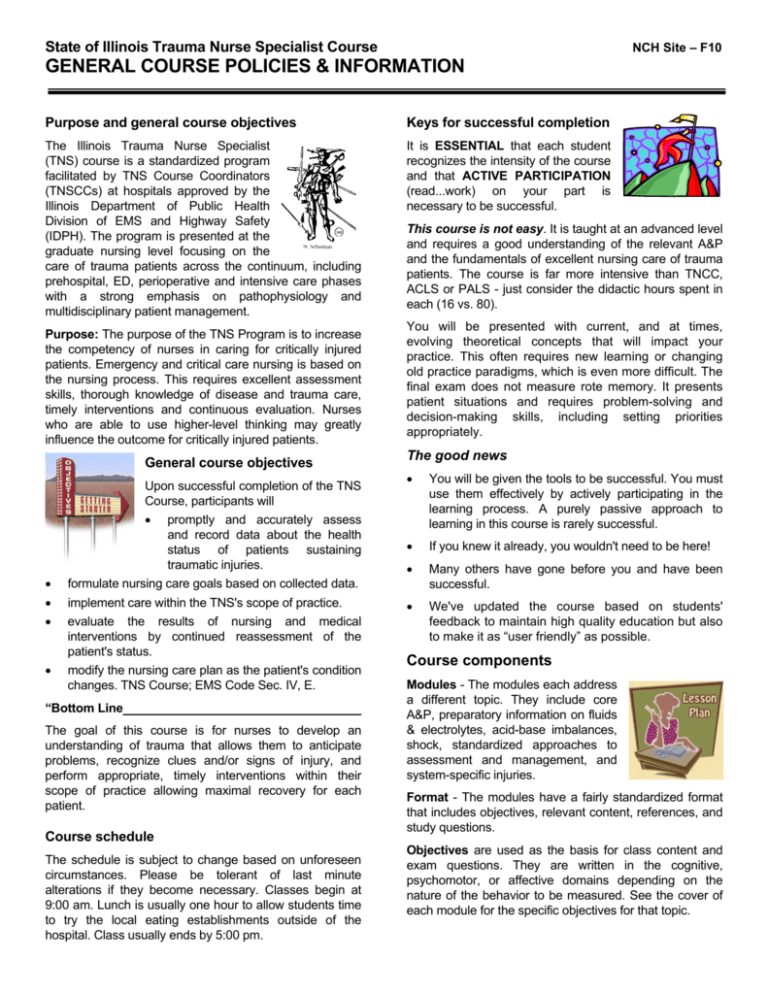
State of Illinois Trauma Nurse Specialist Course NCH Site – F10 GENERAL COURSE POLICIES & INFORMATION Purpose and general course objectives Keys for successful completion The Illinois Trauma Nurse Specialist (TNS) course is a standardized program facilitated by TNS Course Coordinators (TNSCCs) at hospitals approved by the Illinois Department of Public Health Division of EMS and Highway Safety (IDPH). The program is presented at the graduate nursing level focusing on the care of trauma patients across the continuum, including prehospital, ED, perioperative and intensive care phases with a strong emphasis on pathophysiology and multidisciplinary patient management. It is ESSENTIAL that each student recognizes the intensity of the course and that ACTIVE PARTICIPATION (read...work) on your part is necessary to be successful. Purpose: The purpose of the TNS Program is to increase the competency of nurses in caring for critically injured patients. Emergency and critical care nursing is based on the nursing process. This requires excellent assessment skills, thorough knowledge of disease and trauma care, timely interventions and continuous evaluation. Nurses who are able to use higher-level thinking may greatly influence the outcome for critically injured patients. General course objectives Upon successful completion of the TNS Course, participants will • promptly and accurately assess and record data about the health status of patients sustaining traumatic injuries. • formulate nursing care goals based on collected data. • implement care within the TNS's scope of practice. • evaluate the results of nursing and medical interventions by continued reassessment of the patient's status. • modify the nursing care plan as the patient's condition changes. TNS Course; EMS Code Sec. IV, E. “Bottom Line The goal of this course is for nurses to develop an understanding of trauma that allows them to anticipate problems, recognize clues and/or signs of injury, and perform appropriate, timely interventions within their scope of practice allowing maximal recovery for each patient. Course schedule The schedule is subject to change based on unforeseen circumstances. Please be tolerant of last minute alterations if they become necessary. Classes begin at 9:00 am. Lunch is usually one hour to allow students time to try the local eating establishments outside of the hospital. Class usually ends by 5:00 pm. This course is not easy. It is taught at an advanced level and requires a good understanding of the relevant A&P and the fundamentals of excellent nursing care of trauma patients. The course is far more intensive than TNCC, ACLS or PALS - just consider the didactic hours spent in each (16 vs. 80). You will be presented with current, and at times, evolving theoretical concepts that will impact your practice. This often requires new learning or changing old practice paradigms, which is even more difficult. The final exam does not measure rote memory. It presents patient situations and requires problem-solving and decision-making skills, including setting priorities appropriately. The good news • You will be given the tools to be successful. You must use them effectively by actively participating in the learning process. A purely passive approach to learning in this course is rarely successful. • If you knew it already, you wouldn't need to be here! • Many others have gone before you and have been successful. • We've updated the course based on students' feedback to maintain high quality education but also to make it as “user friendly” as possible. Course components Modules - The modules each address a different topic. They include core A&P, preparatory information on fluids & electrolytes, acid-base imbalances, shock, standardized approaches to assessment and management, and system-specific injuries. Format - The modules have a fairly standardized format that includes objectives, relevant content, references, and study questions. Objectives are used as the basis for class content and exam questions. They are written in the cognitive, psychomotor, or affective domains depending on the nature of the behavior to be measured. See the cover of each module for the specific objectives for that topic. State of Illinois TNS Program General Course Policies & Information F10 Page 2 Content - Modules are updated as often as necessary to include the most current evidence-based practice and may reflect emerging concepts that haven’t yet made it to your work environment. Measurements of learning Study questions - Questions are included at the end of each module. They reinforce key concepts and help prepare students for the final written exam. They should be considered "homework". Answers may be reviewed periodically in class or the instructor may make a copy of the key available for review in the classroom. Written exams Lectures - Lectures are only one method to achieve the objectives. They supplement the information provided in the course outlines and provide an interactive method of learning. While lecture content will vary across the TNS sites, the core curriculum and objectives remain the same. Although speakers are provided with a copy of the module associated with their presentation; they may choose to address the information in a manner in which they are more comfortable or share even newer information. While lectures should broaden our understanding of a topic; students are only responsible for information in the course outlines. Faculty will NOT necessarily follow the outlines in the order they are written. Students should be prepared to take notes on regular paper for all presentations. Labs - A number of labs are integrated into the course to provide exposure to the “tools of the trade” and allow psychomotor application of theoretical principles. The object is to gain an awareness and understanding of these skills in a non-stressful setting so you can apply them appropriately. The goal of the lab is not skill mastery. That level of learning comes with time and repetition. Having said that, students are required to understand selected “mandatory” skills well enough to verbalize these procedures during the practical exam. Lab manual: This manual serves as the basis for all skill practice in the simulated labs. Skills lab checklist - This checklist delineates those skills that are mandatory and must be offered at all TNS sites. You will be held responsible for understanding the basic information related to those procedures, i.e., indications, contraindications, critical steps, and evaluation of effectiveness. A preceptor must sign off on the skill at each lab station. The completed checklist becomes a part of the student's permanent folder. Skills lab sheets – Lists the key points and critical steps of each procedure. Used as a learning tool. They do not need to be turned in. Quizzes and exams measure achievement of objectives. Pre-test • A practice exam has been constructed by Continental Testing Services (CTS) that mirrors the same blueprint as the final written exam. It is administered on the first day of class to determine each student’s learning needs. You are not expected to get a passing score on the pre-test. • An item analysis is done for each student and returned within the first several days of class to help guide your study (i.e., you did well on cardiac A&P and thoracic trauma (85%) but will want to focus on Neuro A&P, TBI and spine trauma (52%), etc.). Quizzes • Quizzes measure a student's progress in achieving the knowledge objectives and also identify future learning needs. A minimum of two quizzes must be administered by the Course Coordinator. TNSCCs create their own quizzes at each site. • All of the quizzes at the Northwest Community site are take-home self-assessments that require a timeintensive review of the previous week's material. When completed with diligence, they become a valuable study tool in preparing for the final written exam. They are distributed on Wednesday and are due the following Tuesday. Late quizzes are not accepted unless the student has an excused absence from class on Tuesday. Failure to turn quizzes in on time results in a score of 0 and could make a student ineligible to take the final exams. • Students must score a cumulative average of 80% or above on quizzes to be eligible to take the final exams. If the quiz average is below 80%, one retake of the quiz with the lowest score is allowed. Final written exam • A 150-question exam is developed by Continental Testing Services (CTS) based on an exam blueprint and item bank created by the TNSCCs. The exam is validated through a number of statistical analyses. • Students must register on-line for the exam at the end of the class. Specific information will be provided by the TNSCC. • The number of questions per topic is based on the criticality of the information and the amount of time devoted to that subject during the course. State of Illinois TNS Program General Course Policies & Information F10 • • Page 3 Questions measure the achievement of specific knowledge objectives and are referenced to content in the course outlines. All items are created in a multiplechoice format. There is only one correct answer. TNS Certification • Successful completion of course requirements and the final written and practical exams allows a nurse to be certified by IDPH as a Trauma Nurse Specialist. Students must score a minimum of 80% (120/150) to pass. You will get a letter from CTS announcing your score within 10 days to 2 weeks after the exam. • The TNSCC will forward a roster to CTS recommending that the graduate be allowed to sit for the written exam. Passing the written exam will automatically result in licensure as a TNS. The new TNS will receive a license in the mail from IDPH at the address indicated for receipt of correspondence. • This certificate awards a TNS license number and specifies an expiration date. The TNS number should be the same as the individual’s ECRN or other IDPHgranted certification numbers (PHRN, Lead Instructor, etc.). It is NOT the same as the individual’s NURSING LICENSE number and is not issued by the same State agency. DO NOT DISCARD THE TNS CERTIFICATE. Bring it to your supervisor for duplication. The certificate is valid for four years. Re-test policy: A student who fails the written exam on the first attempt may retake the exam one time after making application to CTS for the next available test. Test dates and times and instructions are posted on the IDPH website: www.idph.state.il.us/ems Practical exam • Consists of a trauma patient assessment during which the student evaluates and stabilizes a simulated critically injured patient within a 10-minute timeframe. • Students are rated on the manner in which they perform a complete assessment and verbalize the resuscitative and possible definitive interventions that are indicated as described in the Patient Management & Assessment skill lab and course module. • • • • If a student experiences undue anxiety during the initial testing attempt, they may ask to be excused, exit the testing station for a brief period, and then try again, without any penalty. For further details see the TNS Practical Exam Guidelines. Passing is defined as performing all critical steps and attaining a minimum of 80% on the grading form. Re-test Policy: One retake is allowed. The student will be informed by the Course Coordinator immediately following the initial testing attempt if a retest is necessary and they will be allowed a second opportunity on the initial day of testing. All sites use the same standardized test scenarios and evaluation form. Live, moulaged victims are the standard for the practical exam. In the case of an emergency (“no show” victims), a manikin may be used. • Exam preceptors are TNS certified and clinically active. • Elimination of bias: Preceptors shall not test students from their own institutions. The TNSCC may retest a student who fails the first time. TNS Recertification: You will receive a renewal notice (child support statement) from IDPH approximately 60 days prior to your TNS certification expiration date. Recertification may be accomplished by submitting approved CE on forms approved by IDPH and a signed child support statement to the nearest TNSCC or by passing the current final written exam for the program. Evaluations Fair, objective evaluations help us improve the program by providing feedback relative to the course, adjunct faculty and the TNS CC. • Faculty - Each speaker must be evaluated against the topic's objectives to provide continuing education credit. Forms will be provided at the time of the lecture and are collected before students leave for the day. • Course coordinator - Provides feedback to the TNSCC. A “blinded” form is provided at the end of the course allowing a summative evaluation. • Course - This form is also completed at the end of the course. • Sponsoring hospital feedback - Agencies financially sponsoring a student are provided general feedback on student achievement while maintaining confidentiality in compliance with Federal laws. State of Illinois TNS Program General Course Policies & Information F10 Miscellaneous • Academic honesty and disclosure: Students shall not engage in, assist in, nor condone lying, cheating, plagiarism, falsification of documentation pursuant to their TNS education. Cheating on quizzes or exams transcends more than social mores or professional ethics. It can affect the quality of care rendered to a patient. Page 4 • Class etiquette: Courtesy to speakers dictates that students make every effort to be on time and to refrain from unnecessary interruptions during a presentation. • Electronic devices: Students are not allowed to use any personal electronic devices while class is in session. Laptops, cell phones and pagers must be silenced and all electronic communication deferred until breaks unless an emergency. Tape recorders may be used at the instructor’s discretion. • Food & beverage: Coffee and hot water will be provided. Food and beverage is allowed in the classroom as long as refuse is cleaned up before labs and before students leave for the day. The hospital cafeteria and cafe are located on the first floor of the main building. Students must wear their TNS badge in order to be served at the employee rate. • ID badges: You must wear your TNS badge at all times when in NCH. If you lose your badge, notify the Course Coordinator so another can be made with a replacement fee. • Parking: Free parking is available in the parking lot of the Busse Center for Specialty Medicine Building. • Pins: The TNS pin is a distinctive symbol of academic achievement and may be worn by those who gain TNS certification. Pins may be purchased for $26 payable to NCH on the last day of class. • Smoking: NCH is a smoke-free environment. This includes the hospital, adjacent hospital grounds, parking lots, and the Wellness Center. • Tuition and fees: $325.00. Standard cost at all sites. Tuition includes classes, labs, examination fees, written handouts and refreshment breaks. Tuition fees are payable to: NCH on or before the first day of class unless prior arrangements have been made with the Course Coordinator. The following are prohibited: • Written information found on a student’s person, clothing, personal effects or property that could provide information about exam content. • Students found to be using any outside source to obtain an answer on a quiz or exam. • Removal of an exam booklet from the testing site. Any student suspected of cheating, falsification of documentation or misrepresentation, will be immediately dismissed from class and academically suspended pending an investigation. If the allegations are sustained, the student will be dismissed from the program. • • • Attendance: Class attendance is strongly encouraged to optimize learning opportunities. Students must complete all quizzes, exams, and labs. Absences from class will be reflected in a reduced number of CEUs awarded. Failure to complete a mandatory element may result in ineligibility to take the final exams. Attire: We ask that all students, faculty, and class guests adhere to the hospital’s dress code for employees. For class, please dress in business casual attire, in good taste. The room temperature is difficult to regulate for the comfort of all students. If you tend to feel cold, bring a sweater or wrap. If the temperature is uncomfortable, inform the TNSCC, so adjustments can be made. Auditing: Auditing of lectures by nurses and paramedics is allowed based on space availability and TNSCC approval. Auditing of labs, quizzes, and exams is prohibited. Auditing, while encouraged, does not carry INA Contact Hour Credit but does carry System CEU credit on an hour for hour basis. Nurses may not audit more than 50% of the didactic portion and then sit for the Challenge Examination. • Breaks: Brief 10-minute breaks are given every hour. • CEUs - Awarded at each site based on a hospital-specific application process. Therefore the number of hours may vary from course to course. Equal Opportunity: The TNS Program provides equal opportunity in education and does not discriminate on the basis of race, color, religion, national origin age, marital status, sexual orientation, or disability as long as the candidate is able to perform all the essential professional functions of a TNS during the course with or without reasonable accommodation. Your success in this class is important to us. If you have a disability (learning, physical, psychological or other) and may require some accommodation or modification in procedures, class activity, instruction, requirements, etc., please contact me early in the class so we can arrange for reasonable accommodations if possible. Welcome & Good Luck in the Course!
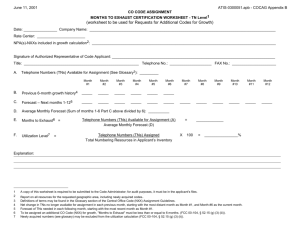
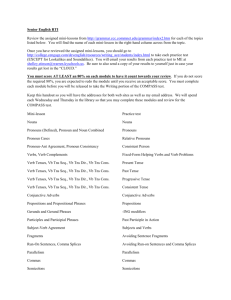
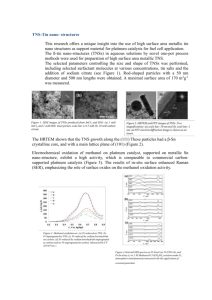
![(TNS Foundation)[1]](http://s3.studylib.net/store/data/007346973_1-c15d24f994805b770e00d79c8993f9db-300x300.png)
